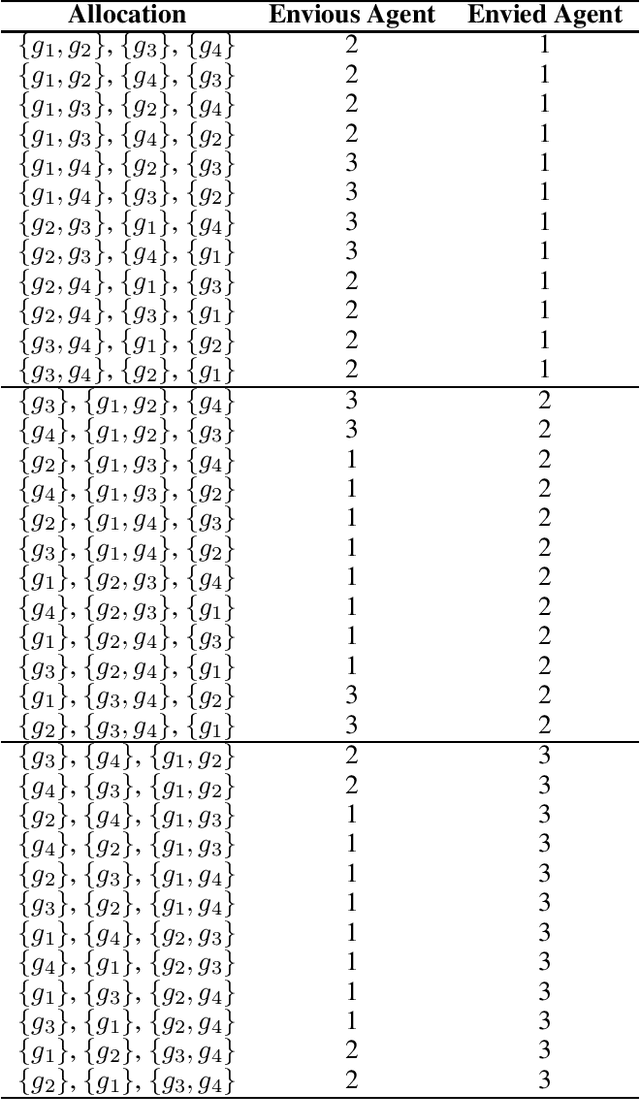Understanding EFX Allocations: Counting and Variants
Paper and Code
Apr 04, 2025

Envy-freeness up to any good (EFX) is a popular and important fairness property in the fair allocation of indivisible goods, of which its existence in general is still an open question. In this work, we investigate the problem of determining the minimum number of EFX allocations for a given instance, arguing that this approach may yield valuable insights into the existence and computation of EFX allocations. We focus on restricted instances where the number of goods slightly exceeds the number of agents, and extend our analysis to weighted EFX (WEFX) and a novel variant of EFX for general monotone valuations, termed EFX+. In doing so, we identify the transition threshold for the existence of allocations satisfying these fairness notions. Notably, we resolve open problems regarding WEFX by proving polynomial-time computability under binary additive valuations, and establishing the first constant-factor approximation for two agents.
 Add to Chrome
Add to Chrome Add to Firefox
Add to Firefox Add to Edge
Add to Edge